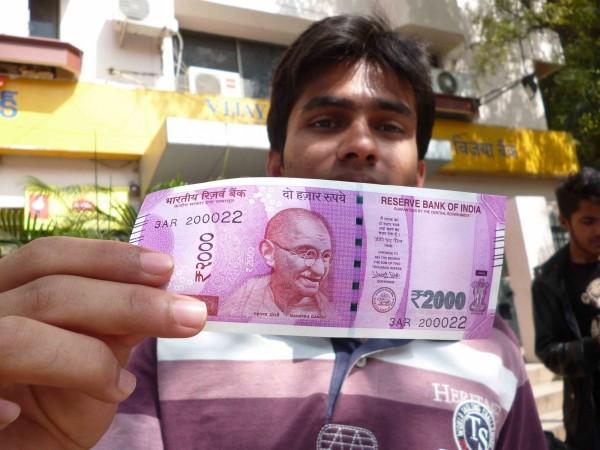
The Indian rupee is a on freefall almost in tandem with the demonetisation decision announced on November 8, 2016. On Friday, the domestic currency plunged 32 paise to close at 68.14 to the US dollar, almost a nine-month low, amid strong possibility of interest rate hike by the US Federal Reserve.
The fall also rubbed off on investors who preferred to wait and watch as events unfold. The BSE Sensex closed 77 points lower at 26,150 while the NSE Nifty ended almost flat at 8,074.
"Any uptick in the market is short lived as the participants are shying away from taking fresh positions. The signals from the FED on December rate hike has inflicted more pain on the rupee and equities which was already reeling from the demonetization," Vinod Nair, Head of Research, Geojit BNP Paribas Financial Services said in a note.
Foreign institutional investors (FIIs/FPIs) were net sellers of Indian equities worth Rs 926 crore, while domestic institutional investors (DIIs) lapped up stocks and ended up as net buyers at Rs 1,143 crore according to provisional data published by the National Stock Exchange (NSE) on Friday.
India's foreign exchange reserves dropped $1.2 billion to $367 billion as of November 11, 2016, according to the Reserve Bank of India's (RBI) weekly supplement released on Friday.
The drop was mainly due to a fall of $1.1 billion in foreign currency assets that form the largest component of the world's fastest-growing economy's foreign exchange reserves.
NTPC, Sun Pharma, Hero Motocorp and Bharti Airtel bucked the trend to end with gains in the range of 4.5 percent to 2.15 percent.
Warning to tax evaders
In a statement issued on Friday, the finance ministry has warned tax evaders that attempts to use bank accounts of third parties to deposit black money will invite strict action.
"There are some reports received that some people are using other persons' bank accounts to convert their black money into new denomination notes for which reward is also being given to the account holders who agree to allow their accounts to be used. This activity is reported in case of Jan Dhan Accounts also.
"It is hereby clarified that such tax evasion activities can be made subject to income tax and penalty if it is established that the amount deposited in the account was not of the account holder but of somebody else. Also the person who allows his or her account to be misused for this purpose can be prosecuted for abetment under Income Tax Act," the statement said.









!['Had denied Housefull franchise as they wanted me to wear a bikini': Tia Bajpai on turning down bold scripts [Exclusive]](https://data1.ibtimes.co.in/en/full/806605/had-denied-housefull-franchise-they-wanted-me-wear-bikini-tia-bajpai-turning-down-bold.png?w=220&h=138)



